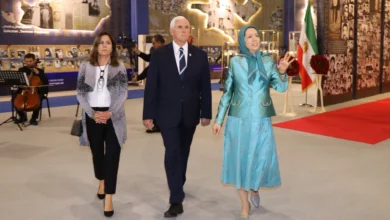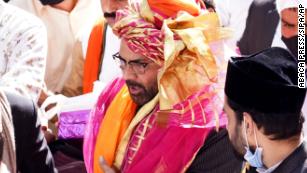Though I write these lines before the official announcement of the first-round election results and though the new parliament will not take full shape until the 5 December run-off vote, there is actually no need to wait for the formalities.
It’s already clear that the ruling National Democratic Party (NDP) has secured nearly 90 percent of the seats in Sunday's poll, according to preliminary election results, which exceeds even the most conservative predictions.
It’s also a given that the Muslim Brotherhood, which has failed to win a single seat outright, will play no role in the new parliament, even if all of its candidates win in the run-offs–a highly unlikely scenario. The new parliament will most probably have no Brotherhood members, especially if the group decides to boycott the run-offs in protest of what took place during the first round.
The other opposition parties, who allegedly made deals with the ruling party, will also have no influence in the new parliament. The way things look, non-NDP candidates will not win more than 50 seats, in other words less than 10 percent, giving them no legislative influence whatsoever.
The end result is that the legislative and executive branches of the Egyptian government will represent two sides of the same coin, with President Hosni Mubarak’s face on both sides. Such a political system will undoubtedly be a lifeless one.
Under these circumstances, talking about the details of election rigging in this or that district is nothing but a distraction and a waste of the time. The broader picture speaks for itself.
The problem is not simply with the 2010 elections but with of the structure of electoral processes–presidential, parliamentary and local–under the NDP regime. Can the NDP’s intellectuals name a single example in recent history of a party anywhere in the world that has won landslide victories, without exception, for 30 consecutive years? If not, then those same intellectuals need either to provide compelling reasons for the NDP’s unique and miraculous performance, which they cannot do, or admit that fraud has become part of the very fabric of this ruling party.
The Egyptian public does not need to see detailed proof that rigging took place–the election results are the strongest evidence. If things continue in this manner, the results of all future elections will be no different. It’s worth bearing in mind that this election outcome was only made possible by political parties that, rather than boycotting, consented to participation in a poll overseen by the security-controlled High Elections Commission and taking place under Egypt’s notorious Emergency Law. The question that the silent majority of Egyptians must now ask is whether they are willing to continue this pattern forever or whether it’s time for a new strategy to put an end to this absurdity?
Let's all strive to answer this tough question.
Translated from the Arabic Edition.




